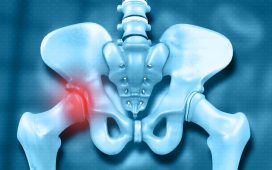Declines in heart failure mortality rates from 1999 to 2012 reversed from 2012 to 2021
By Lori Solomon HealthDay Reporter
FRIDAY, April 26, 2024 (HealthDay News) — Declines in heart failure-related mortality from 1999 to 2012 were entirely reversed from 2012 to 2021, according to a research letter published online April 24 in JAMA Cardiology.
Ahmed Sayed, M.B.B.S., from Ain Shams University in Cairo, and colleagues used data from the U.S. Centers for Disease Control and Prevention Wide-Ranging Online Data for Epidemiological Research to investigate the current status of heart failure mortality rates over time and by sociodemographic subgroups.
The researchers found that heart failure-related mortality declined with an annual percentage change (APC) of −1.62 percent from 1999 to 2005 and −3.29 percent from 2005 to 2009. There was a plateau for declines from 2009 to 2012, with an APC of −0.95 percent. There was an increase in mortality rates from 2012 to 2019 (APC, 1.82 percent), with further acceleration of mortality rates during 2020 and 2021 (APC, 7.06 percent). Reversals occurred across all subgroups but varied in magnitude, with the greatest reversals seen in those aged younger than 45 years (906.3 percent) and 45 to 64 years (384.7 percent), males (119.0 percent), non-Hispanic Black individuals (166.5 percent), and those living in rural areas (92.3 percent).
“Longer survival for patients with conditions that predispose to heart failure (e.g., ischemic heart disease) may lead to an increase in the prevalence of heart failure, thereby increasing the observed heart failure mortality rate,” the authors write.
Several authors disclosed ties to the pharmaceutical industry.
Copyright © 2024 HealthDay. All rights reserved.








